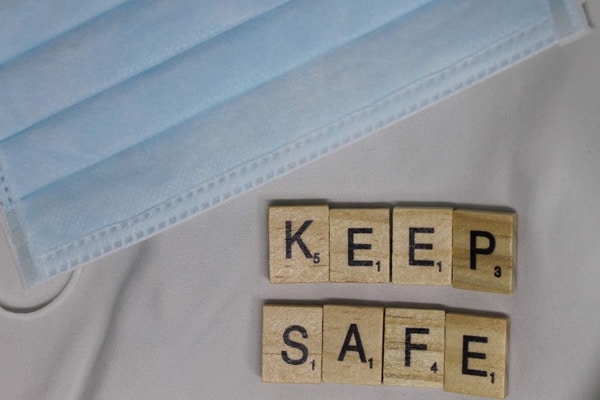Safe is a word in very common use at the moment. It has developed to become included in expressed sentiments such as “Keep safe” at the end of conversations. In that context, it is a kind sentiment expressing a desire for wellbeing in another individual and more than that in society as a whole.
In another context it is a word of instruction: we have all adhered (hopefully) to Government instructions to “Stay safe and save lives”. We understand that we are working together to safeguard our society and particularly vulnerable people from the threat of CoVid19.
Shops, gyms, schools, swimming pools have opened or will open when it is safe to do so, and in some areas facilities have been closed again temporarily when it is deemed unsafe.
I have had heard parents expressing genuine concern about their children’s wellbeing and stating that “We will not send our children back to school until it is safe to do so.” This is very understandable, but what does it actually mean?
“Safe” is an important word with important messages contained within it. However, safe is not an absolute word. What do I mean by that? What I am saying is that it is impossible to create an absolutely safe environment.
Every parent takes a number of risks when they send their children to school e.g. crossing roads (that is why we have people to help with that – the Lollipop people), the risk of bullying, accidents in the playground or playing sport (I broke my elbow at school), disappointments at exam results etc. School is not an absolutely safe place even though people work hard to make it as safe as possible. So why do parents send their children to school? They calculate that the benefits of going to school outweigh the risks.
How about vaccines? They are not absolutely safe on an individual level because of the very remote risk of side effects, but in the broad scale of society, their benefit far outweighs the risk. Mass vaccination provides “Herd immunity” that protects society, in particular, those more vulnerable to the particular disease.
I benefitted from this on a personal level: as a child, I suffered with eczema and as such the smallpox vaccination carried a risk for me, but smallpox itself was arguably a greater risk. I was guarded from the risk of smallpox and also the vaccine because of the herd immunity within society. And ultimately Smallpox was eradicated from the world by vaccination so that neither risk now faces humanity.
Life consists of weighing the balance of risks that we face. In actual fact, I would suggest that God did not create humans to live risk-free. God created the garden of Eden and in it he placed Adam and Eve. Then he made them aware of the risk within the garden. “Don’t eat from the tree of the knowledge of good or evil because you will die.” God’s perfect creation contained a very serious risk. Did this make it unsafe?
Jesus promised us many things, but I don’t think he promised us a life safe from risk before we die. However, He did promise to be with us throughout all things and in that, we find confidence and security. Did he promise us that human interactions would be safe.

